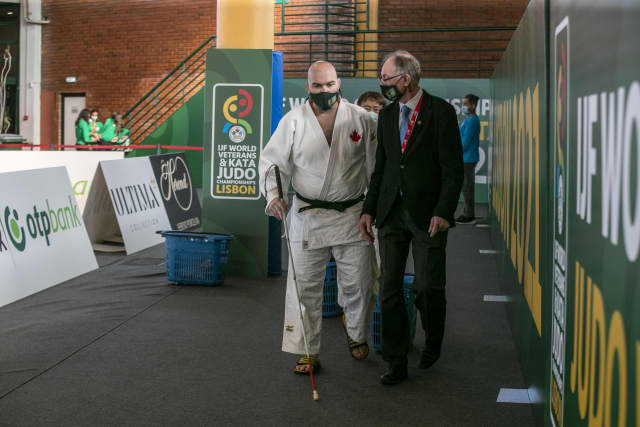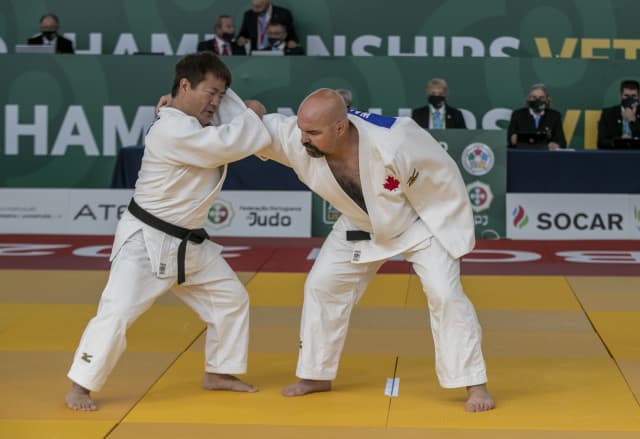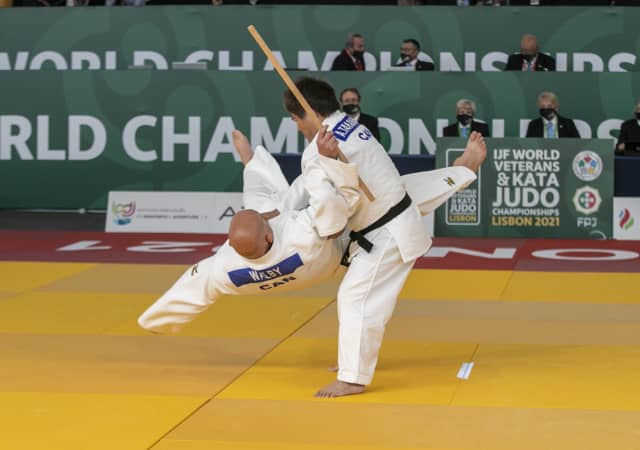Judo has no limits. Tony Walby from Canada has proven again at the Kata World Championships as the visually impaired judoka made history by being the very first judoka to take part in the Kata Worlds.
Tony: “It was not easy, but worth it”, he says.
IJF: How do you feel on a very special day like this?
Tony: I feel great and I can embrace this new challenge and new chapter in my life. From Paralympic shiai (competition), I moved on to try kata and today I felt wonderful. It was a little rough due to the bright lights and I had to be so focused to make sure I would not lose my weapons, but I felt strong today and proud to be here.
IJF: Tell us about your participation at Paralympic games in London and Rio?
Tony: It was phenomenal. The whole Paralympic movement is phenomenal because it gives judoka with visual impairment the chance to compete at the highest level and now I hope visually impaired judoka can see or hear what I did today and try it themselves. Judo is a whole sport, a whole martial art and not just competition. I hope they start to do this as well now.
IJF: Why did you decide to move from shiai to kata?
Tony: I needed a new challenge. When shiai was done for me, I started to coach and teach and I love doing it, but kata was something new for me. I competed for 30 years and it was time to do something that will challenge me in judo and keep me focused on judo. I started off doing kime-no-kata a few years ago and then I switched to kodokan-goshin-jutsu, as I did it here. It is new, and it is challenging and very difficult because I cannot see my partner until the last moment... if I am lucky. On days like today with so much sunlight, I can’t see him at all, so a lot of pressure is on him as well. My partner is Allyn and he must adapt to small changes when necessary. I must take care of where I place the weapons, how many steps I must take to the weapons, so that I don’t step on them or trip on them. So, it is a challenge and that’s why I did it. It is part of judo.
IJF: You mentioned your partner Allyn, is it important to work as a team here?
Tony: I could not do this kata, I could not do any kata without a strong partner who is willing to take the time and extra time in my case. Most teams are training just on the kata, but Allyn and I are training not just on the kata but on the timing and spacing, sometimes we count how much time it takes us to walk to bow, so that we are in rhythm. We have a lot of extra work to do on top of just training with the kata. You need a dedicated partner and I’ve got one of the best. I am so lucky to have Allyn Takahashi.
IJF: What do you wish to everyone out there who wants to follow your example?
Tony: If people are looking for challenges, if they want to be better than they are today and if they are willing to do the hard work, they should be here.
Tony's story is the story of dedication and commitment to the values of our sport. He is an extraordinary example, who shows us how to overcome adversity and that there is ordinary in the extraordinary, participating in the Kata World Championships. But it is also a story of solidarity, from his partner Allyn and from everyone who made possible this wonderful adventure.



